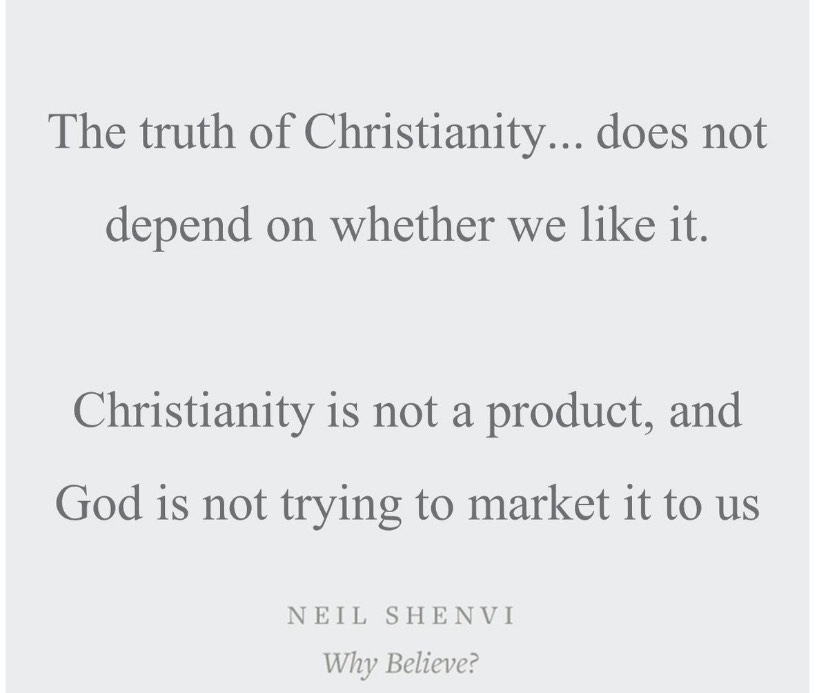Let’s use this quote card as a window into the fundamentalist-evangelical world and its view of truth. I’m interpreting this quote in that broader context.

Too often, it seems, this orientation toward faith holds an all too scientific and rationalistic view of “truth” based in a modern mindset.
- In this view, truth is a mental reality that CORRESPONDS to an external reality.
- This truth is OBJECTIVE, secured through an unbiased METHOD, and therefore “does not depend on whether we like it” (as the quote says).
- And this objectivity is protected by an AUTHORITY who is stands beyond tradition and emotion.
Seeking objective correspondence with reality based in an authority might work for science (even thought is actually doesn’t, but that for another post).
But it certainly doesn’t work for the most important truths in the world.
The Truth of Geoff
Listing all the scientific truths about me misses the most important things about me.
Someone could objectively list my height, weight, age, location of birth, and current residence, and vocation. But that wouldn’t really get at the truth of who I am. You still wouldn’t really know who I am.
To do that you would need to get to know my motivations, dreams, and desires. You would have to be in friendship with me over time to see how I change and what remains the same. You would have to the family and community I’m from and live in, the stories we tell ourselves and what we fear.
The truth of “Geoff” is found in the overlapping networks of relationships and the individual and communal meanings that flows in and through all of it.
The scientific method for securing truth can never give us the MEANINGFUL truths about persons and their relationships.
The Truth of Christianity
And Christianity—if anything—is all about persons learning to love one another and love God. So it’s truth—the truth of persons in relationship—cannot be reduced to scientific observation.
Against Consumerism (and progressive “Constructivism”)
Now, I assume Neil is trying to defend Christianity against a consumeristic mentality where faith in just one among many lifestyle choices and personal preferences. To that I can agree. I don’t think the truth of Christianity is just a self-actualization project of authenticity. I assume the secondary target is also the progressive-liberal critique that all truth is a “construction” humans make to protect their privileges (the conflation of power and truth).
But is it accurate that God is not marketing this truth to us in some way?
Marketing is a kind of persuasion. And if God isn’t persuading us that this kind of life—life in Jesus by the power of the Spirit—is the best kind of life, then God would need to be coercing us.
And coercing us just doesn’t seem to be what God is doing in Jesus through the Spirit.
So, while we must stand against a consumer understanding of faith, we can’t also sacrifice the way in which God is calling us—with is to love through love.
Which is not to say that we just “construct” the truth, hoping that love wins over oppression.
Christianity Doesn’t Correspond to Anything
Rather, we need an idea of truth that is less “correspondence” and “construction” and more “conformed by”—that the truth is more like something that happens to us, not something that we put out into the world.
Christianity doesn’t correspond to any external reality in the world—not in a scientific sense.
Certainly I believe we are being conformed to a reality that is external to us, that is beyond us, and not of our own making.
But that reality is known and lived into through faith—a faith that lacks the scientific certainty that ‘correspondence’ claims for itself.

